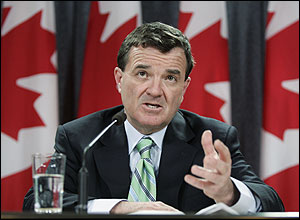Finance Minster Jim Flaherty recently gave the income trust sector an unwelcome surprise. Prime Minister Harper had previously promised to “stop the Liberal attack on retirement savings and preserve income trusts by not imposing any new taxes on them”, but the government underestimated the momentum towards trust conversion and was facing a very significant loss of tax revenue.

Not satisfied with merely preventing new trust conversions, Flaherty decided to impose retroactive tax measures on existing trusts. Many of these existing trusts happen to underpin conventional oil and gas production in Alberta – in fact the trust structure was initially developed to facilitate production from mature assets in the oilpatch. The proposed tax changes could therefore have a significant effect on energy production and the Alberta economy specifically. Departing Alberta Premier Ralph Klein welcomed the tax measure.
Alberta was hurt by the trust tax loophole. We were losing hundreds of millions of dollars in revenue.
However, he and the rest of Alberta may well be far less pleased once the implications of this experiment in retroactive tax policy come home to roost. Continue reading “Income Trusts and the Canadian Energy Sector”
